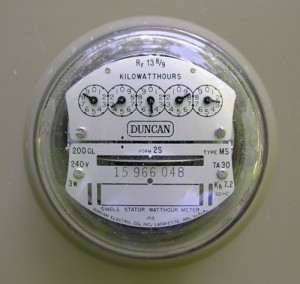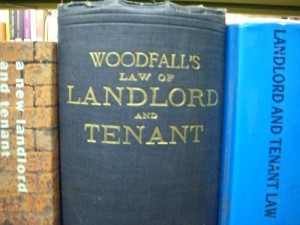Posted by Teresa on August 10, 2011 under Landlord Tips | 
 When you become a landlord, it’s not easy to figure out the best way to approach every problem. You’re bound to make mistakes (otherwise known as “learning opportunities”). Following these 8 tried-and-true tips from other successful rental property owners can make it easier for you to avoid making common errors.
When you become a landlord, it’s not easy to figure out the best way to approach every problem. You’re bound to make mistakes (otherwise known as “learning opportunities”). Following these 8 tried-and-true tips from other successful rental property owners can make it easier for you to avoid making common errors.
- Remember you’re in the people business. Providing good service to your tenants is part of your job. If you’re shy, or don’t deal well with a wide variety of personalities, you may not find success as a landlord.
- One way to provide good service is to respect your tenants’ privacy. Always provide notice before you enter their units. The minimum is at least 24 hours; more may be required by your local or state laws.
- Don’t ever allow a tenant to move in until the rental agreement is signed and the first month’s rent and security deposit are paid.
- Don’t allow a tenant to move in until a background check, credit check and reference checks are completed.
- Keep up with maintenance and repairs, or they can get out of hand—and even become a hazard. If not repaired promptly, a loose board on a stairwell can lead to injury or even a tragic situation.
- When tenant disputes come up—as they invariable will—try to resolve them through good communication first. If an agreement cannot be reached, you might try mediation. Mediators are neutral third parties who make sure both sides’ issues are heard, and assist you in reaching an agreement both sides can live with.
- It’s important to put your tenants’ health and welfare first. Disclose hazards, such as lead paint, according to the law. Take care of water leaks, which can lead to mold. Address any insect or rodent problems immediately. And always make sure that door and window locks are easy to operate, fire escapes are accessible and smoke and CO2 detectors are in place and operating.
- Keep good records. Every piece of correspondence with a tenant is valuable. You never know when you’ll need proof of a payment, a notice or a conversation.
Posted by Teresa on August 5, 2011 under Lease and Rental Agreements | 
 When a tenant moves out, but leaves personal property behind, what is the best way for a landlord to handle it? As with most tenant issues, the best way to take care of a problem is to prevent it in the first place. And barring that, it’s best to have it covered in your lease so there are no questions about how to proceed, and the tenant has already agreed to the process.
When a tenant moves out, but leaves personal property behind, what is the best way for a landlord to handle it? As with most tenant issues, the best way to take care of a problem is to prevent it in the first place. And barring that, it’s best to have it covered in your lease so there are no questions about how to proceed, and the tenant has already agreed to the process.
Tenants often leave furniture, clothes, books or appliances behind when they move. Some no longer want the items, and figure the landlord will just clean up after them. Others want the landlord to store their property until they are able to retrieve it. Either way, it can be troublesome for the landlord.
When a Tenant Abandons Property
First, check your local laws on abandoned property. You may be obligated to hold a previous tenant’s property for a period of time, which could be five days or 30 days, before you may dispose of it. Some jurisdictions require landlords to send notices via registered mail as well. Failing to follow your local laws could land you in legal trouble, so if you’re in doubt, obtain legal counsel.
Preventing the Left-Behind Property
The best scenario is when landlord and tenant do a walk-through of the rental property on move-out day. A move-out inspection is conducted and the tenant initials each item, recognizing any damage or possible deductions from the security deposit. However, that’s not always possible. If you or your property manager are not present when the tenant leaves (and many do so under the cover of darkness—especially if they’re leaving behind a mess), you could be in for a big surprise when you come to inspect the property.
Every rental agreement should contain a clause that clearly addresses how the property owner will handle any property left behind after the lease is up. Abandoned property should be defined, and the time between the end of the lease and the disposal of the property clearly stated. Remember, you’re not running a storage facility, and you could be entitled to rent for each day a tenant’s personal belongings are in your rental property.
You could simply state that all property left behind after termination of the lease will be considered abandoned and will be disposed of, according to statute. Of course you should consult a landlord/tenant attorney for exact language and guidance.
Posted by Teresa on July 26, 2011 under Landlord Tenant Lawsuits | 
 Disputes between landlords and tenants are part of the job of being a landlord. And sometimes it’s necessary to sort things out in a court of law. But court cases are time consuming, expensive, and mostly unpleasant. For many landlords, taking a tenant to court is the worst aspect of owning rental property.
Disputes between landlords and tenants are part of the job of being a landlord. And sometimes it’s necessary to sort things out in a court of law. But court cases are time consuming, expensive, and mostly unpleasant. For many landlords, taking a tenant to court is the worst aspect of owning rental property.
The next time you and a tenant don’t see eye-to-eye on an issue, why not explore alternatives, such as mediation? Professional mediation is a non-adversarial process for resolving disputes that can save you time and money, as well as improve your relationship with your tenant.
What Is Mediation?
• Mediation allows both sides to share their side of the story in the presence of a trained, neutral mediator.
• Is private and confidential.
• Can result in binding agreements, but no one can be forced to accept an unsatisfactory solution.
• Is typically less expensive than court-based solutions.
• Results in a settlement about 85% of the time.
• Is offered by some municipalities or universities for free, so check to see if that’s an option where you live.
Mediators help adversaries talk through a problem without anger, for a more efficient communication process. Professional mediators also help the parties work through possible solutions and come to an agreement.
Mediation cannot be used when legal advice is needed or a case involves criminal charges.
Mediation Can Assist in Disputes Between Landlords and Tenants
• Damaged property
• Rent payments or increases
• Security deposits
• Repairs
• Noise complaints
• Property use issues
• Common area maintenance disputes
• Pet issues
A web search can help landlords locate nearby mediation services. And remember, it can be free of charge, depending on where you are located.
Posted by Teresa on July 8, 2011 under Eviction, Lease and Rental Agreements, Rents and Deposits | 
 Whether you accept actual checks or electronic rent payments from your tenants, you may face a time when the tenant lacks funds to cover their payment—and your account is hit with a fee. Bounced checks cause loss of time and productivity, and landlords should not allow tenants to treat a returned rent check as anything less than the serious situation it is.
Whether you accept actual checks or electronic rent payments from your tenants, you may face a time when the tenant lacks funds to cover their payment—and your account is hit with a fee. Bounced checks cause loss of time and productivity, and landlords should not allow tenants to treat a returned rent check as anything less than the serious situation it is.
How do you handle bounced checks from your tenants?
Many landlords we know demand immediate full payment from the tenant for the rent, any applicable late fees, and a separate handling fee. The handling fee should cover both your bank’s returned check charge and your administrative time. If the full rent payment comes in after late fees have been assessed, be sure to add them to the total due.
Check your local and state laws regarding the amount of late and returned check fees you can charge. You may be able to charge a tenant penalties and interest; or you may be limited to a flat fee.
In addition, check local and state ordinances or with a landlord/tenant attorney regarding whether late and returned check fees must be spelled out in lease agreements. In some states and localities, fees must be clearly stated in the lease or the landlord may not charge them. In others, whether or not the lease includes the fees has no bearing.
Of course, including all applicable terms and fees in the lease is always a good idea. If your lease clearly spells out the consequences for bounced checks, including late fees, repayment requirements and time limits before eviction proceedings begin, your tenants should have no questions or surprises if and when they do write a rent check without having sufficient funds to cover it.
Protect your rental property and assets through tenant background checks. Proper tenant screening will ensure you are leasing to the best possible tenants.
Posted by Teresa on May 28, 2011 under Eviction, Lease and Rental Agreements | 
 The Chicago Housing Authority is proposing a new rule that all adult tenants will need to be drug tested, and if they test positive, eviction proceedings will begin. While some private landlords would welcome the opportunity to test and then evict illegal drug users, more have to deal with tenants who smoke pot.
The Chicago Housing Authority is proposing a new rule that all adult tenants will need to be drug tested, and if they test positive, eviction proceedings will begin. While some private landlords would welcome the opportunity to test and then evict illegal drug users, more have to deal with tenants who smoke pot.
If you’ve noticed the distinctive smell of marijuana wafting out of your rental properties, how did you handle it? Some might think that smoking pot is as harmless as drinking a beer, but it’s still illegal. And if you’re ignoring a tenant’s drug use, you could be putting your business at risk.
Did you know that illegal drug use by tenants in your rental units could subject you to related property damage and personal injury suffered by other tenants or the public? Is it worth it to you?
Your best move as a landlord is to include a clause in your lease agreement that tenants agree to not violate any applicable laws, including the possession, use or sale of illegal drugs. If and when a tenant violates the lease by choosing to smoke marijuana, you have the grounds to evict.
Some landlords might think evicting over pot smoking is overkill. But allowing it can leave you open to litigation; the potential for harm is just too great. Besides, if you can smell marijuana, your other tenants probably can, too. What message are you sending if you fail to enforce the law, as well as the terms of your lease agreement?
Posted by Teresa on May 11, 2011 under Landlord Tips | 
 Landlords and property managers have to deal with tenant complaints. It’s just a fact of life when you’re in the rental property business. Whether you’re interacting with a tenant who complains frequently or rarely, it’s important to properly track the complaint and your response—you never know when you’ll need the facts of the matter to protect yourself and your assets.
Landlords and property managers have to deal with tenant complaints. It’s just a fact of life when you’re in the rental property business. Whether you’re interacting with a tenant who complains frequently or rarely, it’s important to properly track the complaint and your response—you never know when you’ll need the facts of the matter to protect yourself and your assets.
Establish Good Communication With Every Tenant
Encourage tenants to come to you with complaints, rather than letting them go or complaining to other tenants. You can foster this by demonstrating good listening and communication skills. Get to know your tenants as people, listen for clues about what matters to them, and give them the respect they deserve. When tenants trust you, they will be more likely to approach you with a problem.
Establish a Tenant Complaint Procedure
Creating an official form demonstrates to the tenant that you are taking their complaint seriously. It also allows you to keep a record of the situation. You can record details of how you handled the complaint, what repairs or remedies were performed, and you can even make a note of when to follow up with the tenant to be sure the complaint is resolved to their satisfaction. This becomes especially important in cases where a tenant withholds rent for non-satisfaction of complaints.
Fixing broken windows or door locks, replacing noisy ceiling fans and other mechanical problems can usually be resolved to everyone’s satisfaction. When tenants complain about their neighbor’s bad parking habits or noisy parties, you have a more delicate situation on you hands. If your lease agreement includes a list of “house rules” such as quiet time or established parking areas, then you’re covered. You simply speak to the tenant who is breaking the rule and point out that expectations were clearly established. If the problem continues, written warnings and even eviction are your next steps.
It may be difficult–if not impossible–to keep 100% of your tenants 100% happy. But the goal is to keep good tenants in your properties and to keep everyone as safe and as happy as you can. Resolving issues promptly goes a long way toward that goal.
Posted by Teresa on April 6, 2011 under Lease and Rental Agreements | 
 The utilities section in a property lease is one of the most important. It stipulates who is responsible for the utility bills associated with the rental property. Failing to specify which utilities the tenant will be responsible for can cause headaches and financial loss to the landlord.
The utilities section in a property lease is one of the most important. It stipulates who is responsible for the utility bills associated with the rental property. Failing to specify which utilities the tenant will be responsible for can cause headaches and financial loss to the landlord.
Determining who’s responsible for the unit’s utilities—and having a signed agreement—is important because it protects both the landlord and the tenant. Each utility company has different ways of handling rental properties. Once you know how things work in your area, decide which arrangement works best for your situation; there are many options, including:
- In single-family rental houses, tenant pays all utilities directly to the provider
- Landlord pays for utilities that can result in liens against property if unpaid
- Tenant pays for everything except sewer and water
- Landlord pays utilities and has tenants reimburse him
- Landlord pays only for utilities the building owner is responsible for
- Tenants pay for anything that is metered to their unit; utilities with shared meters (usually water and sewer) are paid by landlord and built into the rent
- Landlord pays for garbage and recycling pickup only
Once you determine which arrangement works best, draft your this section of the rental agreement stating that the tenant is responsible for all utilities except for those (specify them) the owner will be paying. Also include language that the tenant agrees to make the payments through the term of the lease and nonpayment will be considered a breach of the agreement. State that any past due utility bills may be paid by the owner and will be charged to the resident, along with applicable fees.
As part of your due diligence before you sign the lease, check with the utility companies to be sure the tenant qualifies for an account in his or her name. Outstanding bills may prevent this—if you sign a lease with a tenant who cannot get the utilities in their name, you’ve just wasted a lot of time working with a tenant who won’t be moving into your rental property.
Finally, most landlords we know have utilities revert to their name between tenants.
Posted by Teresa on April 1, 2011 under Landlord and Tenant FAQs | 
 Question: A landlord accepts applications from three potential roommates for a three-bedroom rental unit. The first two check out fine. The third proves to be difficult and unpleasant, even borderline verbally abusive, in all her interactions with the landlord. He decides to not even order a tenant credit report and rejects all three applicants. Is the landlord allowed to refuse a tenant for reasons other than a credit score?
Question: A landlord accepts applications from three potential roommates for a three-bedroom rental unit. The first two check out fine. The third proves to be difficult and unpleasant, even borderline verbally abusive, in all her interactions with the landlord. He decides to not even order a tenant credit report and rejects all three applicants. Is the landlord allowed to refuse a tenant for reasons other than a credit score?
Answer: Of course. A landlord may decline an applicant for any reason other than those covered under the Fair Housing Act, which bars discrimination based on race, color, national origin, religion, sex, familial status (including children under the age of 18 living with parents or legal custodians), pregnant women, elderly people, people securing custody of children and handicap (disability).
A landlord does not have to disclose reasons for rejecting a tenant—you can simply say a more qualified applicant was approved. (Under the Fair Credit Reporting Act or FCRA, a letter must be sent to an applicant if credit is declined, including for rental housing)
Question: A landlord advertises a rental property using the following language:
For Rent. 3BR apartment, 3rd floor. Not suitable for kids or elderly.
Is this discriminatory?
Answer: Yes. See above: landlords may not deny housing based on family status or age. This landlord could get in big trouble for this type of ad.
Question: A landlord starts eviction proceedings after discovering a tenant has kept a cat in her apartment—contrary to the lease, which states no animals are allowed. The tenant tells the landlord that she needs the cat because it is a therapy animal. Is the landlord discriminating against the tenant based on a disability?
Answer: It often depends on where the rental property is located. In most areas, a tenant must provide proof that the therapy or companion animal is necessary for the individual’s mental health or stability. This is usually a statement by a medical provider. The Americans with Disabilities Act (ADA) does not include companion, emotional support or therapy animals, because they have not been trained to perform tasks that benefit a disabled person.
Posted by Teresa on February 9, 2011 under Housing Trends | 
 Arizona state lawmakers have approved to send to the full state Senate a new law requiring landlords and tenants to share responsibility for bedbugs in rental units. Here’s how the proposed law shakes out:
Arizona state lawmakers have approved to send to the full state Senate a new law requiring landlords and tenants to share responsibility for bedbugs in rental units. Here’s how the proposed law shakes out:
Rental property owners will be required to:
- Keep their units free of bedbugs.
- Provide tenants a copy of the law, once passed, as well as with educational materials on bedbugs, including prevention and control measures.
- Arrange for a licensed pest control company to inspect a unit within seven business days of a possible bedbug problem.
- Start the process of mitigating the bedbugs in the rental unit within seven days of finding evidence of infestation.
Tenants are responsible for:
- Notifying landlords in writing or via electronic document of infestations.
- Providing access to their units for inspection and bedbug treatment.
- Complying with the bedbug mitigation protocol established by the pest control company is required. This includes pre- and post-treatment procedures, temporary evacuation of the unit and notifying within three days of recurrence.
Additional Requirements:
- Landlords are prohibited from knowingly leasing a bedbug-infested rental unit.
- Tenants are prohibited from moving bedbug infested materials into a rental unit.
- Only licensed pest control applicators would be allowed to treat bedbugs in multifamily housing.
- Tenants must receive written notification of mitigation treatment three business days or more before it begins.
Perhaps most important is the allocation of financial responsibility. According to the bill, while the landlord is responsible for pest control expenses when tenants comply with their obligations, the responsibility falls to a tenant if they fail to comply. In this case, not only are tenants responsible for mitigating the problem in their own unit, but also any surrounding units that become infested due to non-compliance.
This bill is one of the first we’ve seen that tackles the bedbug problem in rental units. And, it seems to be pretty fair to landlords. What do you think?
We’ll follow the bill as it progresses through the Arizona state Senate.
Posted by Teresa on February 1, 2011 under Landlord Tips | 

Abandonment is a tricky situation for landlords. It may seem pretty straightforward that abandonment has occurred when a tenant moves furniture and other possessions out of a rental property, hasn’t been seen by the neighbors in a several weeks, and doesn’t return messages—but the law may see it differently.
It’s best to check with a lawyer for the specific laws in your state. But when can a landlord consider a rental unit abandoned, and therefore prepare it to be leased to a new tenant?
Laws vary by state and locality, but here are some general guidelines for landlords:
- A unit could be considered abandoned when the tenant owes rent and has left evidence of abandonment, such as removing furniture and clothing, along with personal care and other items. Again, it depends on the state.
- If the tenant’s rent is current, the unit is not usually considered abandoned, even if the furniture and other possessions have been removed,. You do not want to rent the unit to another tenant, only to see the original tenant return. Wait until the end of the rental period that has been paid before attempting to turn over the unit.
- Cumulative signs, such as a tenant informing the landlord or neighbors that they planned to leave, along with a large amount of uncollected mail, removing all the furniture, and turning off the utilities, could be considered evidence of abandonment.
- Most landlords know to make reasonable efforts to contact the tenant. Telephone calls and emails may be the first methods, but it’s always a good idea to send a certified letter. Make sure to keep copies of letters and notes regarding dates and times of calls and emails.
- If the tenant appears to be gone and didn’t turn in the keys to the rental unit, don’t automatically change the locks. Again, you must first determine whether abandonment has occurred under the laws of your state.
- Tenant property is another area protected by the law. Don’t dispose of a tenant’s property, even if it appears they abandoned it, without checking your local and state laws. Some states allow 30 days for the tenant to claim the property; others allow six months.
It may not seem fair that when abandonment by a tenant occurs, the landlord is responsible for cleaning up the rental unit, gathering all the left-behind property and storing it for the tenant. Fair or not, it’s often the case—and just another part of being a rental property owner!
 When you become a landlord, it’s not easy to figure out the best way to approach every problem. You’re bound to make mistakes (otherwise known as “learning opportunities”). Following these 8 tried-and-true tips from other successful rental property owners can make it easier for you to avoid making common errors.
When you become a landlord, it’s not easy to figure out the best way to approach every problem. You’re bound to make mistakes (otherwise known as “learning opportunities”). Following these 8 tried-and-true tips from other successful rental property owners can make it easier for you to avoid making common errors.

 Disputes between landlords and tenants are part of the job of being a landlord. And sometimes it’s necessary to sort things out in a court of law. But court cases are time consuming, expensive, and mostly unpleasant. For many landlords, taking a tenant to court is the worst aspect of owning rental property.
Disputes between landlords and tenants are part of the job of being a landlord. And sometimes it’s necessary to sort things out in a court of law. But court cases are time consuming, expensive, and mostly unpleasant. For many landlords, taking a tenant to court is the worst aspect of owning rental property.





